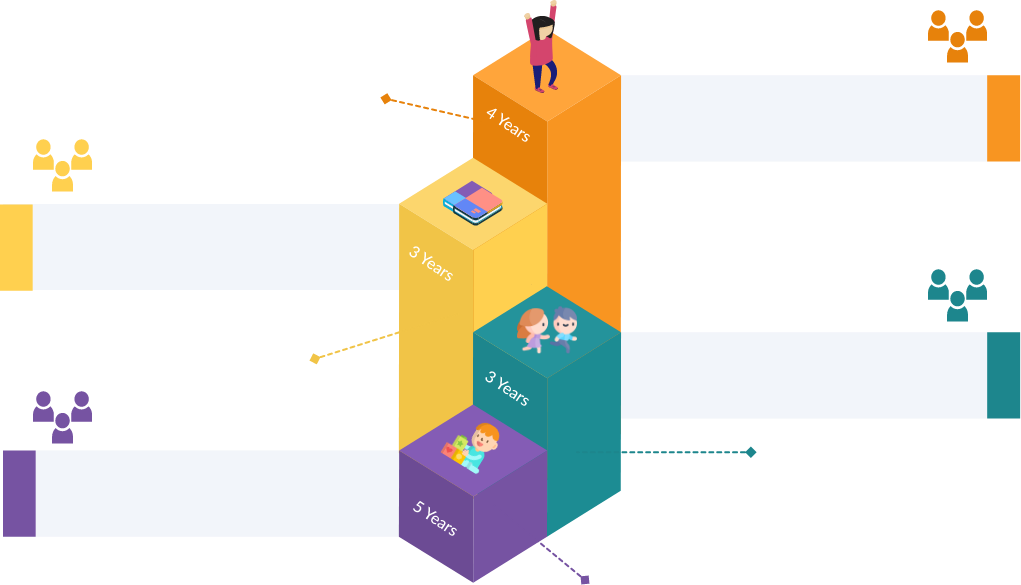Features of DIKSHA for Parent

Pedagogical structure and the curriculum framework

(Age 14-18)
(Age 11-14)
Pre-School/
Balvatika,
Grades 1 & 2
Age 3-8
(Age 8-11)
Conceptual & experimental learning in the Science,
Math, Arts, Social Sciences & Humanities
Play/activity-based learning
Multidisciplinary study, flexibility and student choice of subjects
Play, discovery and activity-based learning
 Grades 9 to 12 (Age 14-18)
Grades 9 to 12 (Age 14-18)
Secondary Stage
Multidisciplinary study, flexibility and student choice of subjects
 Grades 6 to 8 (Age 11-14)
Grades 6 to 8 (Age 11-14)
Middle Stage
Conceptual & experiential learning in the Science, Math, Arts, Social Sciences & Humanities
 Grades 3 to 5 (Age 8-11)
Grades 3 to 5 (Age 8-11)
Preparatory Stage
Play, discovery and activity-based learning
 Anganwadi/Pre-School/Balvatika,Grades 1 & 2
(Age 3-8)
Anganwadi/Pre-School/Balvatika,Grades 1 & 2
(Age 3-8)
Foundational Stage
Play/activity-based learning
Explore Study Material
Select any stage to know more about curriculum
The Foundational stage under the National Education Policy 2020 will cover school education of 3 years of Anganwadi/pre-school + 2 years in primary schools in Grade 1-2; both covering ages 3-8. The Foundational Stage will consist of five years of flexible, multilevel, play/activity-based learning and the curriculum and pedagogy of ECCE
The Preparatory Stage under the National Education Policy 2020 will cover school education from Grade 3 to Grade 5 catering children with age group of 8-11 years. The Preparatory Stage builds on the play-based learning of the Foundational Stage, introducing light textbooks and interactive classroom activities to develop skills in reading, writing, speaking, physical education, art, languages, science, and mathematics.
The Middle stage under the National Education Policy 2020 will cover school education from Grade 6 to Grade 8 catering children with age group of 11-14 years. The Middle Stage builds on the Preparatory Stage by introducing subject teachers and focusing on abstract concepts in sciences, mathematics, arts, social sciences, and humanities. It emphasizes experiential learning and interdisciplinary exploration alongside specialized instruction.
The Secondary stage under the National Education Policy 2020 will cover school education from Grade 9 to Grade 12. catering children with age group of 14-18 years. The Secondary Stage offers four years of multidisciplinary study, building on the Middle Stage with deeper subject focus, critical thinking, flexibility, and student choice. Students may exit after Grade 10 and re-enter later to pursue vocational or other courses in Grades 11-12.


